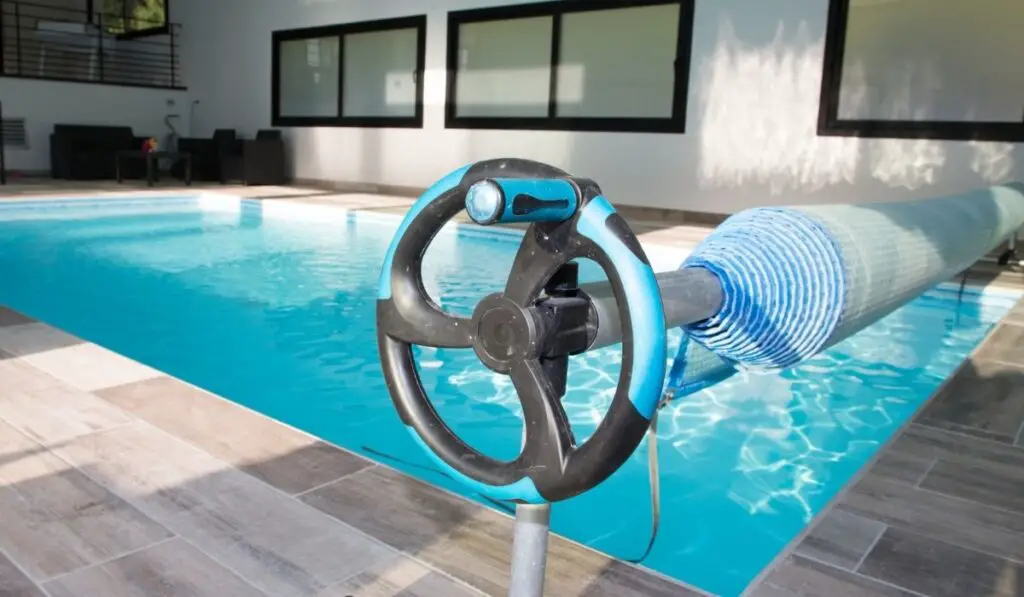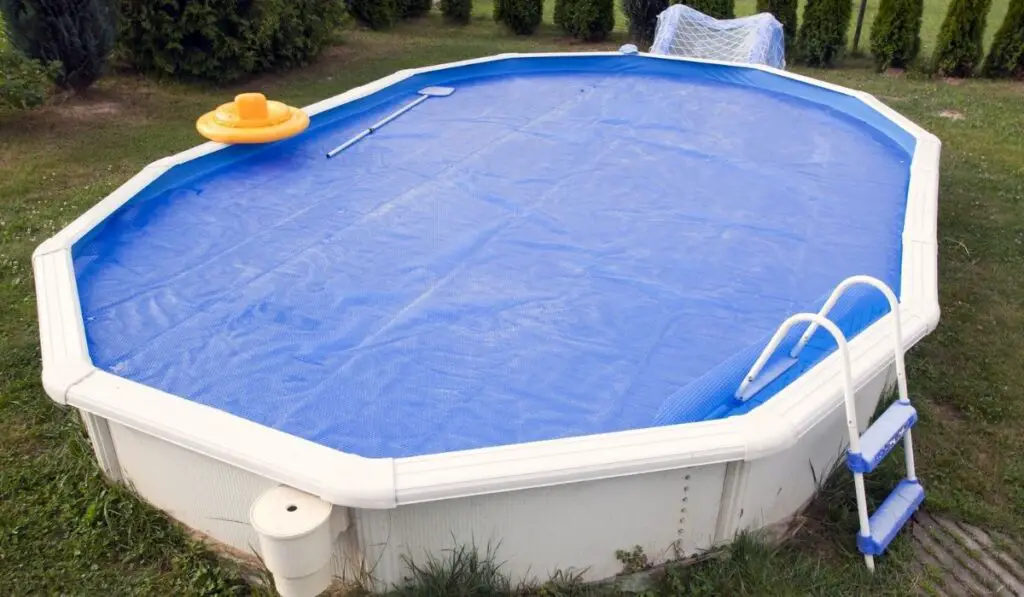Looking to get in your pool but the water is way too cold? During the cooler months, this is an all too common problem for pool owners. So, if you’re trying to get the temperature up fast, what do you need to know?
When it comes to heating your pool quickly, gas or propane-powered heaters are the way to go. What they lack in cost-efficiency they make up for in speed. With a gas unit, you can expect your pool to reach the desired temperature in around a day, though it may cost ~$100 or more to run.
Of course, there are other heating options to consider, but they just aren’t as fast. The problem, though, is how much you’re willing to spend on heating your pool. Moreover, if you’re looking for green or sustainable options, gas is not the way to go. Read on to learn more about gas pool heaters and your other options.
How to Heat a Pool

Pool heating is no simple matter, and there are quite a few things to keep in mind. Factors like installation can add or subtract from your heating efficiency, and you’ll need to make several important decisions based on needs, pool size, and energy concerns.
First, pool size will play a large role. The bigger the pool, the harder it’ll be to keep it warm. Moreover, for smaller pools, not as many high-end solutions exist to warm up your water — so keep that in mind.
The next factor is location; shade is great for beating the summer heat, but not for collecting warmth during the cooler months. For instance, if your pool is located in the shade of your house, you can expect a difference of at least 3 degrees Fahrenheit compared to a location in the sun.
This goes for large trees and other obstructions.
Another thing you can do to keep your pool heated is to use insulation. Much like your coffee mug, adding insulation to your pool’s foundation is a great way to retain heat. Since most areas have ground temperature under the ambient temperature, it means that insulation will help keep your pool warm during the cooler months.
Lastly, the heater you choose will be the biggest player, so choose the system wisely based on your individual needs. Let’s take a look at your options.
Gas Heaters
Looking to add some real power to your pool’s heating system? Well, gas might be the right choice for you. Gas or propane powered heaters are a great choice for many reasons, but efficiency sure isn’t one of them. On our list, gas comes in last when it comes to bang for your buck. But, there is a trade-off.
In this case, it’s in terms of power. If you’re looking to get your pool hot fast, gas is the way to go. These units work in combination with your pool’s pump to push hot water into your pool. But when it comes to efficiency, expect to pay a pretty penny for fuel.
While these prices vary depending on where you’re located, you can still assume other options like electric heaters or solar will be cheaper in the long run.
Another factor to watch out for is longevity. While gas-powered units can last a while, they have the shortest lifespan of all pool heaters — so keep that in mind.
Solar Power

If you’re looking to harness the power of the sun, solar is the way to go. While you might be thinking of panels on your roof, that’s not always the case with solar.
Some units work in the traditional sense, i.e; energy from the sun powers a heating unit, but others actually pump water into areas where the sun can easily warm it. Here are some of the solar-powered pool heaters you might find:
- Traditional Solar Heater: Using panels on your roof, power from the sun is used to power an electric heater.
- Solar Cover: Covers like this one from In The Swim (on Amazon) use heat from the sun and transfer it into your pool when not in use. These need 100% coverage to properly work.
- Solar Domes: Solar domes (on Amazon) pump water into coiled pipes to help increase the surface area for heating. They occupy much less space and can easily be set up.
- Solar Rings: Much like a solar cover, solar rings (on Amazon) transfer the heat from the sun in smaller circular mats. Easier to work with, but a bit less efficient.
- Liquid Cover: Using swim-safe ingredients, liquid covers (on Amazon) create an invisible barrier that helps trap heat.
Solar covers, rings, and liquid covers all add an extra element in terms of trapping heat, and that helps reduce evaporation. Through evaporation alone, you can lose several degrees in the evening.
While solar power is great, it has some downsides. Mainly, those are the upfront costs of installation and the inefficiency. While a gas unit can heat a pool in about a day, it can take a few sunny days to get a pool up to the desired temperature with solar.
Heat Pumps
Electric heat pumps can be a great option for many pool owners. They don’t pack the same heating power as a gas unit, but they still offer some heating efficiency. Moreover, they can last quite a while — if you pick a quality unit.
Keep in mind that you’ll still need to pay for upkeep. Although many units are fairly energy efficient, that doesn’t make them cheap. Of course, your costs will depend on where your pool is located, the size, shading variables, and the cost of electricity in your area.
Electric units can also be expensive, making the upfront costs for installation higher than gas but cheaper than some more efficient solar methods.
Black Hose
Looking for a cheap way to heat your pool? Then this method is for you. While this method can work, it’s more of a “hack” than a long-term solution, at least for most pools. The gist is that you need to use a black garden hose, like this one (on Amazon), and you need a means to link it to your pool’s pump system.
Then, you need to lay the hose out in the sun. Since it’s black, it will absorb a lot of heat from the sun, and since your pool water is running through the hose, it will warm the water as it pumps in and out of your pool.
For smaller pools, like above-ground units, this method can be quite effective. It will take quite a while — a bit slower than solar options — but it can work. Sometimes, it can take a few sunny days to warm up a smaller pool.
Windproof Enclosures
Wind is the enemy of the heat you’ve got in your pool. With every cold gust, precious degrees are stripped from your water. It follows that if you can stop the wind, you can help reduce this heat loss. That’s the idea of windproof enclosures.
These can be a great way to cut down on wind and are best as a supplement to another heating method. They won’t warm your pool, but they will help reduce heat loss. You’ll need to cover your entire pool, so custom units are often the only option.
